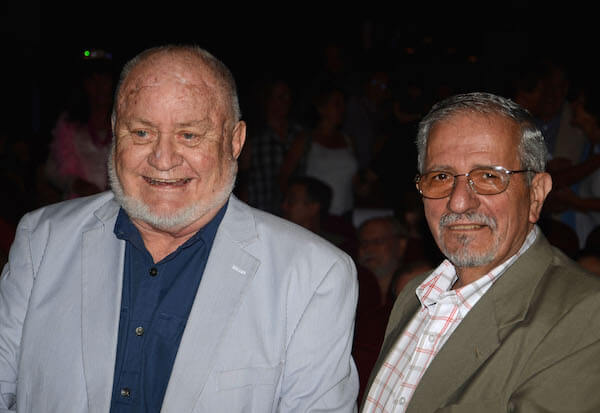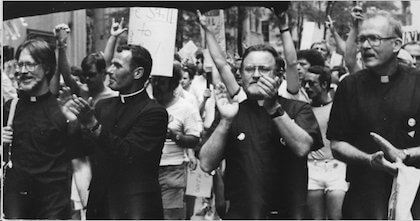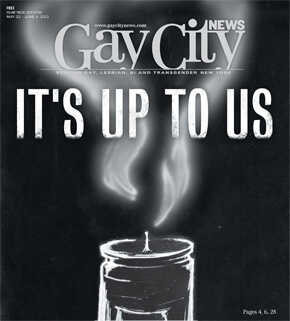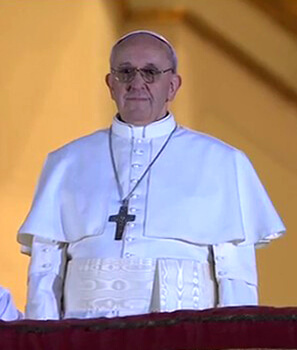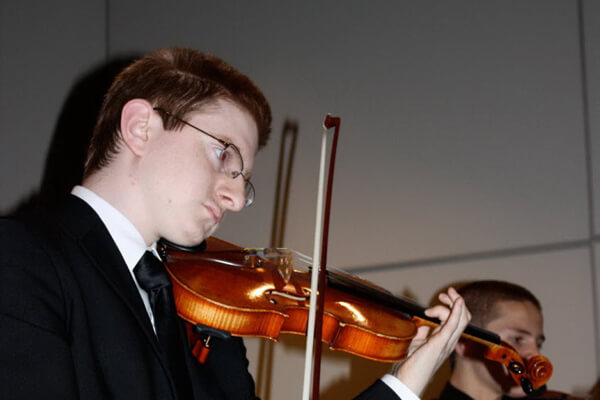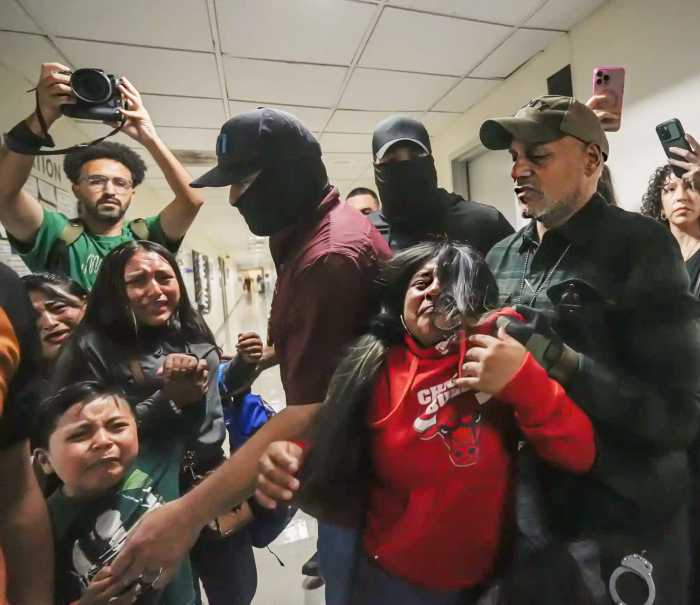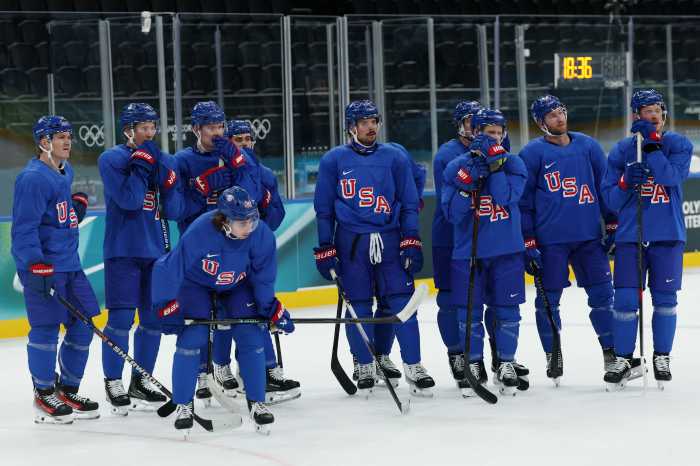I was on my way to see my shrink on Fifth Avenue and 66th Street the day John McNeill’s book “The Church and the Homosexual” hit the front pages of the New York Times. The year was 1976. I don’t know if I was looking for a cure for my homosexuality or some kind of immaculate deception to deal with my priestly celibacy and emerging homosexual consciousness.
What I do know is that the sight of McNeill’s book being reviewed did more for my psychological health than the thousands of dollars and hundreds of hours spent in therapists offices up until then. Father McNeill’s book opened for millions of lesbian and gay Catholics and others worldwide a door to freedom that no amount of oppression could ever close. I was elated as I floated into Dr. Padovano’s office. Here at last was hope.
Prior to that moment, I had read everything I could lay my hands on in Catholic moral theology regarding homosexuality –– the cumulative effect being a constipation of thought followed by diarrhoea of despair. With McNeill’s book, at last, there was a true work of scholarship meticulously researched and beautifully executed. Scripturally and theologically, it broke new ground, and for the next 12 months and more John Mc Neill’s face was on every chat show and every other publication across the nation.
John, who died at age 90 on September 22, was instrumental in the founding of Dignity New York in 1972. His work and experience in those early days (less than three years after Stonewall) with Catholic gay men “compelled” him, he once told me, to respond in whatever way he could to the “loneliness, pain, and anguish” of his gay brothers. Having been attracted early on in his studies to Maurice Blondel, a French pre-existentialist philosopher from the turn of the century, he found his Jesuit vocation summed up in a passage of Blondel’s: “One must give all for the all.”
Certainly, this laid the theoretical basis for his movement into political and social activism. John was a Jesuit for almost 40 years before his expulsion in 1987 because of his views on lesbian and gay sexuality –– even though he had obediently obeyed his silencing by the Vatican a decade earlier. John hoped that his silence would “speak eloquently” together with other greats like Blondel, Teilhard de Chardin, John Courtney Murray, and Henri de Lubac. But the new Inquisition in Rome did not exhaust itself in those 10 years. “Forced” to speak in response to the “evil” oppression of Cardinal Joseph Ratzinger’s letter on “The Pastoral Care of Homosexual People” –– which asserted that “the particular inclination of the homosexual person is… a more or less strong tendency toward an intrinsic moral evil; and thus the inclination itself must be seen as an objective disorder” –– Father Mc Neill gave up membership of the Jesuits, the religious family that he loved as much as life itself.
John met his lifetime companion Charlie Chiarelli in 1965 at the Avignon papal palace in France. (I have always wondered which one of them tried on the papal tiara first!) John and Charlie’s relationship of love did as much –– and possibly more –– in bearing witness to the Christlikeness of homosexual love as his life’s work writing and teaching about that. By the time he published “Taking a Chance on God” in 1988, the landscape had changed decisively. Now John McNeill was offering another challenge: if religions were not welcoming to lesbian, gay, and transgender people, why should we be open to them?
With “Freedom, Glorious Freedom” in 1995, the subtitle tells all: “The Spiritual Journey to the Fullness of Life for Gays, Lesbians, and Everybody Else.” In this book, he describes much of what happened to him along the way, especially how his spiritual life was enriched by being gay and vice versa. He does not strike out against those who wronged him, but describes with remarkable equanimity how the same Jesuit “discernment of spirits” brought him to coming out and speaking out. It was his position that living with integrity required congruence between truth and appearance that propelled John McNeill to both a mature, healthy self-acceptance and an equally mature, healthy insistence that the rest of us and the Church do the same. It was this message that he shared with clients and audiences, this congruency between what you see and what you get that made him who he was.
What John became in a lifetime of devotion to the Gospel and dedication to its demand for justice for all was an honest man in love –– this in sharp contrast to so many of his confreres who love with fear or who just fear. He did not need to hide Charlie, pretend that he was celibate, or choose between ministry and marriage. He had it all and deserved it all. John did for Catholicism what Stonewall did for the world; he insisted on the need to fight back against those who would discriminate.
His great work earned him the opprobrium of Rome, but it also put the rest of us in his debt as he pioneered a struggle that by all Christian values ought to be long over by now, yet sadly is not.
He said that his tombstone will read, “Here Lies a Gay Priest Who Took a Chance on God!” Cynics among us would probably have given up on God, Jesus, the Church, and the Jesuits long ago had we not experienced John as friend and mentor. As we extend our deepest sympathy and prayer to his husband Charlie, we know John is amongst the saints forever and a day.
Father Bernárd Lynch, the co-chair of London Irish LGBT Network, has worked in Zambia, New York, and London, where he has carried out AIDS ministries and done both pastoral and psychotherapeutic work with people in oppressed communities, including closeted Roman Catholic priests. Following the 2012 publication of his memoir “If It Wasn’t Love,” in which he discussed his 1998 marriage to husband Billy Desmond, Father Lynch was expelled from his Roman Catholic order, the Society of African Missions.

